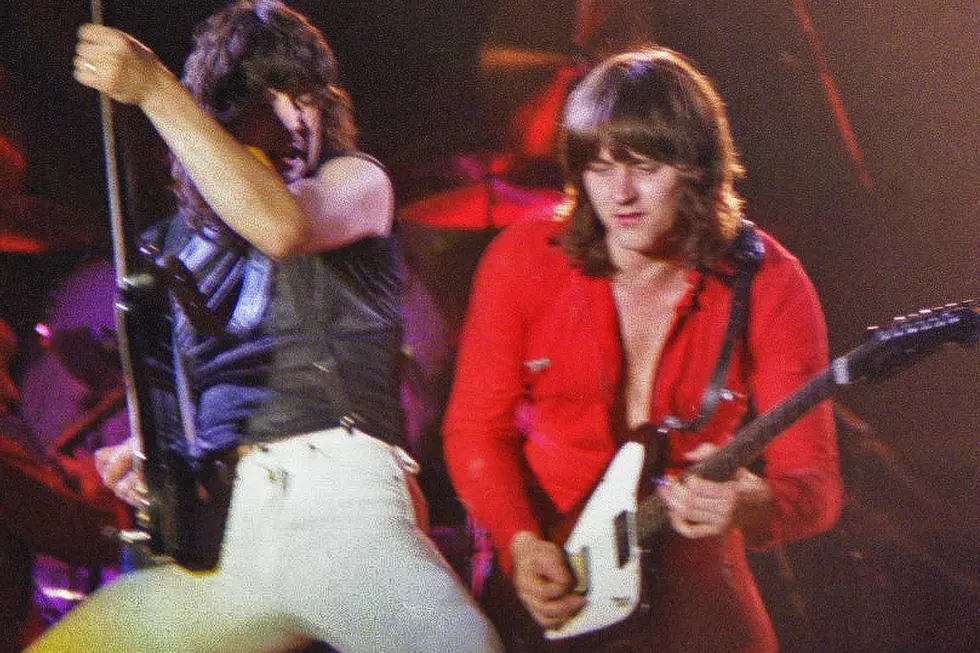
How UFO Finally Landed on the U.S. Chart With ‘Force It’
UFO pretty much rescued their career from oblivion by abandoning the unsuccessful space-rock of their first two albums and reinventing themselves as melodic hard rockers on 1974’s Phenomenon. So it stood to reason that Force It, released in July 1975, would take that learned wisdom and run with it.
Musically, UFO’s fourth album kicked off with a pair of lean and muscular heavy rockers in “Let it Roll” and “Shoot Shoot.” Both songs maximized the crunchy riffs and incendiary solos of German-born guitarist Michael Schenker, who had been the catalyst behind the otherwise English ensemble’s stunning reinvention.
Not that singer Phil Mogg, bassist Pete Way and drummer Andy Parker were in any way slouches, but with Schenker adding the final piece of their collective puzzle (check out his otherworldly solo in “Mother Mary”), the quartet was finally able to shine their talents on more ambitious and expressive numbers. These included “High Flyer” (a strategic nod to their wisely abandoned space-rock past), the anthemic “Out in the Street” (enhanced by Chick Churchill’s piano work) and “This Kid’s” borderline progressive assemblage of spare song parts (subtitled “Between the Walls”).
Elsewhere, “Too Much of Nothing” parsed out some vocal lines to bassist Way (the song’s composer) over a pounding heavy metal foundation, while “Love Lost Love” and “Dance Your Life Away” delivered yet another sampling of UFO’s newfound hard rock focus, albeit with less stellar results. But then no album is perfect.
They completed things with cover art which boasted a typically racy and perplexing design courtesy of those popular crackpots at Hipgnosis. The cover was changed for American audiences, with the couple made to look almost transparent.
None of it stopped UFO from enjoying their first trip into the U.S. charts and some of the first truly enthusiastic reviews in their five long years of hard work. Melody Maker proclaimed the band’s arrival by stating it was “about time they were sighted by a few more people,” while, In Sounds, reviewer Geoff Barton praised Mogg as a “nasty vocalist” and Schenker’s versatility by saying his guitar playing was “scalding as the hot tap, or as icy as the cold one.”
UFO were officially entering their creative zone, and the rest of the ‘70s would see them capitalizing on the successful direction begun by Phenomenon and then confirmed by Force It.
Weird Facts About Rock's Most Famous Album Covers
Criminally Underrated Rock Albums
More From Ultimate Classic Rock









